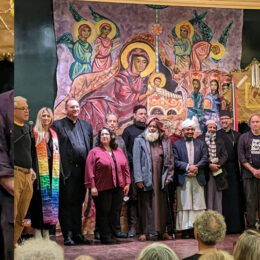WSJ | Alan Charles Kors | May. 27, 2008
The academic world that I first encountered was one of both intellectual beauty and profound flaws. I was taught at Princeton, in the early 1960s—in history and literature, above all—before the congeries that we term “the ’60s” began. Most of my professors were probably men of the left—that’s what the surveys tell me—but that fact was never apparent to me, because, except in rare cases, their politics or even their ideological leanings were not inferable from their teaching or syllabi. Reasoned and informed dissent from professorial devil’s advocacy or interpretation was encouraged and rewarded, including challenges to the very terms of an examination question.
[…]
The power of universities comes from their monopoly of credentials. As Richard Vedder so deeply understands in his “Going Broke by Degree,” they are the only institutions allowed to separate young individuals by IQ and by the ability to complete complex tasks. They do not add value to that, except in technical fields. Recruiters do not pay premiums because of what the Ivy League or the flagship state universities teach in English, history, political science, or sociology. They hire there despite, not because of, that. Recruiters do not pay premiums because our children have been sent to multicultural centers for sensitivity training. Recruiters pay premiums for the value already there, which universities merely identify. So long as recruiters pay premiums, however, it is rational for parents who wish to gain the most options for their children to send them to the university with the most prestigious degree. That will not change in the current scheme.
We now have closed-shop, massively subsidized, intolerant political fiefdoms, and they are the gatekeepers of society’s rewards. Without incentives for different models of higher education, we shall have this same system of colleges and universities as far as the mind can foresee. The tax-free mega-endowments will grow. The legislators and the public will not end the subsidy. The alumni will continue their bequests. The trustees will proudly attend the administrative dog-and-pony shows, the most efficient act on any campus. Well-intentioned donors will support ghettoized “centers” (without faculty lines, cross-listed courses, graduate fellowships, or degrees) that marginalize inquiries that should be central to the academy. These provide protective coloration for administrators, help with fund raising in certain quarters, and permit a transfer of funds to the accelerating thirst for ever new forms of regnant campus orthodoxies. Until civil society makes administrators pay a price for the politicized hiring, curriculum and student life offices they administer, nothing truly will be reformed.
In my fantasies, I try to imagine a way to force these academic enterprises to engage in the truth in advertising they claim to value. Let colleges and universities have the courage, if they truly believe what they say privately to themselves and to me, to put it on page one of their catalogues, fundraising letters and appeals to the state assembly: “This University believes that your sons and daughters are the racist, sexist, homophobic, Eurocentric progeny or victims of an oppressive society from which most of them receive unjust privilege. In return for tuition and massive taxpayer subsidy, we shall assign rights on a compensatory basis and undertake by coercion their moral and political enlightenment.” It won’t happen.
One still can protect a few individuals and keep a hint of pluralism alive by means of honest exposure, shame and ridicule, but this is work—vital and moral, and an end in itself—that affects only the margins. The sad bottom line is that there are no incentives for administrators to offer a different product, such as a niche of high-quality education, equal treatment, liberty and merit. Parents invest understandably in the value of degrees, not in the quality of curriculum and faculty.
. . . more




As a high school Social Studies teacher, I can tell you that many of my colleagues try to indoctrinate their students. I hear it from my students.
I taught in Miami, FL from 1989-2006. I am currently in North San Diego County. In Miami it was intense. There were black militant teachers in “inner-city” schools. The Gay-Lesbian coalition was pushing its agenda on students. The liberals were passing out “Vote For John Kerry” flyers in class to students to take home. With the exception of a Psychology teacher, they weren’t even part of the Social Studies department. During the 2004 elections, some of my students were harassed by their teachers if they spoke up for George Bush.
When I begin the introduction to my course for the school year, I warn students that during their educational years, there will be teachers and/or professors who will try to force their opinion upon them. I tell them that every teacher/professor, myself included, teaches from a particular point of view. It is their duty to think for themselves, analyze the information available, and come to their own conclusions. I tell them to not accept everything I say as fact. However, if they want to debate a particular point with me, they must present the evidence to support their argument. Don’t argue with me based on emotions. NO student’s grade will ever suffer because they disagree with me. As a matter of fact, a couple of years ago, I had a history student who was “diametrically opposed” to everything I believed in. She defended her opinions so well, I gave her the student of the year award. Rwrely will find that with a liberal educator.
David, I’ve been teaching/facilitating undergraduate and graduate courses for the last 9 years and I take a similar approach as you. Here’s the disclaimer I use in my courses (both online and face-to-face):
Excellent article. I concur with the author’s assessment reference the state of higher education in America. Knowing that there is little I can do to combat the situation directly, I have found a practical use for it as my children make their way through the university. (My own educational path has been rather checkered – undergraduate studies at conservative evangelical schools topped off with two years at a Jesuit university [really an enclave for neo-marxists]; graduate school at an Eastern Orthodox seminary and a graduate degree in education from a state university) I would probably be characterized as conservative by most folk, due in no small measure to the time I spent receiving instruction directly from the left. Though there was a time when what they taught appealed to my young, idealistic mind, as time went by it could not bear up under the scrutiny of simple rational analysis; the basis for their materialist worldview is skewed.
Now, with three college age children, I encouraged them to attend the local state university. One completed a degree and the remaining two are making their way. As they engage their coursework, I enjoy very much discussing with my children what they are being taught. We discuss, challenge and debate. One of my children, who at one point stated, “dad, if I can’t see it, taste it, feel, touch it, I won’t believe it,” now realizes that such a way of looking at and interacting with the world can only lead to death of the soul, corruption and the perpetration of every conceivable evil against anyone or any group of people that one chooses to despise; that is of course you are not already in one of the groups selected for derision by others. In short, I encourage my children to listen and hear with a critical, analytical ear; ask questions. Work through in your mind, the logical conclusion to the thought, philosophy, ideas with which you are presented. As they do so, I am supremely confident they will be able understand what they are being taught for what it is. Another byproduct is credibility then with which to speak; after all, they will have a degree from the state university.